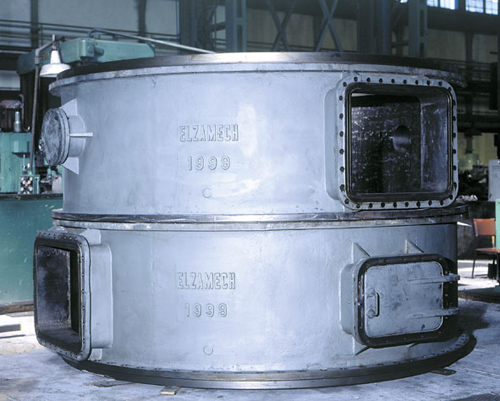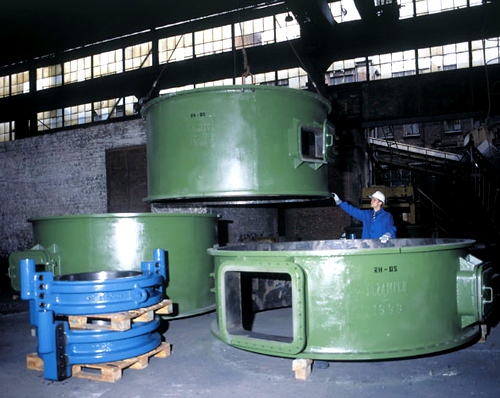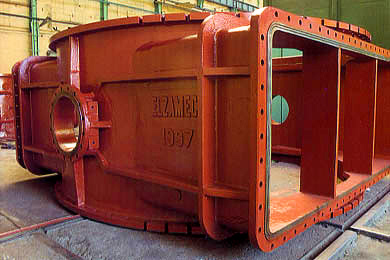The Polish chemical industry is a significant component of the national economy, generating over PLN 440 billion in sold production in 2023, which accounted for 18.4% of the total Polish industrial output. This sector employs more than 340,000 people, which is crucial for creating new jobs, and we must remember that the industry is constantly developing.
The chemical industry consists of four main segments:
- commodity chemicals (plastics, dyes, pigments, fertilizers, chemical fibers);
- fuels and petroleum products (gas, gasoline, diesel/heating oil, LPG);
- chemical processing (lacquers, paints, adhesives, fragrances, plastic products);
- low-tonnage chemicals (cosmetics, household chemicals, plant protection products).
Poland is an active participant in international chemical trade, ranking 11th among global exporters. The value of exports reached €1.1 billion in 2023 (a 1.7% share). Although the European chemical industry has faced challenges in recent years, including high energy costs, the forecasts for 2025 are optimistic. The growth rate of production is expected to remain similar to last year's level, in which Europe recovered approximately 3% of its losses. As experts indicate, the sector's recovery is possible through national and EU support programs for innovation, streamlined legislative processes, and simplified regulations.
A key challenge in the chemical industry is contact with substances that can cause rapid material degradation. This includes strong acids, alkalis, salts, or solvents. Iron, particularly its special grades, exhibits high corrosion resistance in harsh conditions. This property is due to its microscopic structure and alloying additives, which form a passive protective layer on the surface. As a result, iron castings are an ideal material for producing pump bodies, valves, pipelines, and mixer chambers that must work in constant contact with aggressive media. Choosing iron over other, more expensive metals often allows for comparable durability at significantly lower costs.
Ductile iron – a revolution in chemical foundry
A specific type of material that has revolutionized iron castings for the chemical industry is ductile iron. Unlike traditional gray iron, where graphite appears in flakes, in ductile iron it has a spherical shape. This microstructure significantly increases its tensile strength, impact resistance, and ductility. Consequently, ductile iron castings can be used where components with increased resistance to shocks and sudden pressure changes are required. This is particularly valuable in the production of pumps, fittings, and other components subjected to dynamic loads. You can read more about ductile iron in the article: What is ductile iron?
Iron castings – maximum resistance to extreme pressure and temperature
Chemical processes often occur under pressures that can reach dozens or even hundreds of atmospheres. In such conditions, construction materials must demonstrate exceptional mechanical strength. Iron, due to its high compressive strength and good tensile properties, is perfectly suited for producing pressure elements. This is why it is used in reactors, heat exchangers, and compressor housings. Furthermore, iron is characterized by high thermal stability. Iron castings can operate in a wide temperature range, maintaining their mechanical properties, which is crucial in endothermic and exothermic processes.
Another advantage of iron is its excellent castability. This allows for the production of components with very complex shapes and precisely replicated details without the need for complex and costly machining processes. In the chemical industry, components with specific, non-standard shapes that must fit perfectly into existing installations are often required. Thanks to the flexibility offered by iron casting technology, it is possible to create integrated elements that reduce the number of connections, thereby minimizing the risk of leaks and failures.
Examples of iron castings in the chemical industry
Pump and valve bodies
Iron castings, especially those made from special grades, are used to produce device bodies due to their exceptional corrosion resistance and high mechanical strength. This ensures long-term, trouble-free operation, minimizing the risk of leaks and failures.
Pipeline components
Pipes, fittings, and elbows used for transporting chemicals must be resistant to aggressive media and high pressure, and iron castings are an ideal material for producing such components. They provide not only tightness and durability but also ease of assembly and maintenance in demanding industrial conditions.
Mixers and reactors
In chemical processes like synthesis or mixing, devices that can withstand extreme conditions are crucial. Iron castings are used to produce reactor and mixer housings. Their thermal stability and resistance to pressure and corrosion make them indispensable in these applications, ensuring the safety and efficiency of the processes.
Parts for filters and heat exchangers
Filters and heat exchangers in the chemical industry are often exposed to chemicals and high temperatures. Iron castings are used to produce their housings and internal components, which ensures their long lifespan and wear resistance. Their precise manufacturing, made possible by excellent castability, allows for the creation of complex shapes necessary for the efficiency of these devices.
Components for auxiliary machines and equipment
In addition to the main production processes, iron castings are used in many other infrastructure elements of the chemical industry. They can be found in compressor housings, pressure vessels, as well as in support arms and structures, where their strength and stability are crucial for the entire construction.
Example of ELZAMECH iron castings for the chemical industry
Heater Distiller Barrel
- Material: EN-GJL-250
- Weight: 4700 kg
- Internal Diameter: 3000 mm
- Height: 1000 mm

Heater Distiller Barrel
- Material: EN-GJL-250
- Weight: 6400 kg
- Internal Diameter: 3000 mm
- Height: 1500 mm

Carbonization Column Cooling Barrel
- Material: EN-GJL-250
- Weight: 7300 kg
- Internal Diameter: 2800 mm
- Height: 1358 mm

Investing in high-quality iron castings is not only a guarantee of reliability but also an economic decision. In the high-risk world of the chemical industry, the choice of appropriate materials is crucial for safety, efficiency, and profitability. Thanks to their exceptional corrosion resistance, mechanical strength, and design flexibility, iron castings are a reliable solution. They serve as the foundation upon which efficient and safe installations are built. Furthermore, the long lifespan of iron components leads to less production downtime, lower maintenance costs, and less need for part replacement. What's more, iron is a recyclable material, fitting into the concept of a circular economy. The use of secondary materials for the production of new castings reduces the demand for natural resources and energy. In this way, iron castings contribute to a reduced ecological footprint in the chemical industry, which is a priority for many businesses today. By investing in components made from iron castings, companies are simultaneously investing in the future development of their business, as their production processes become stable and poised for growth, for example, by entering foreign markets.

